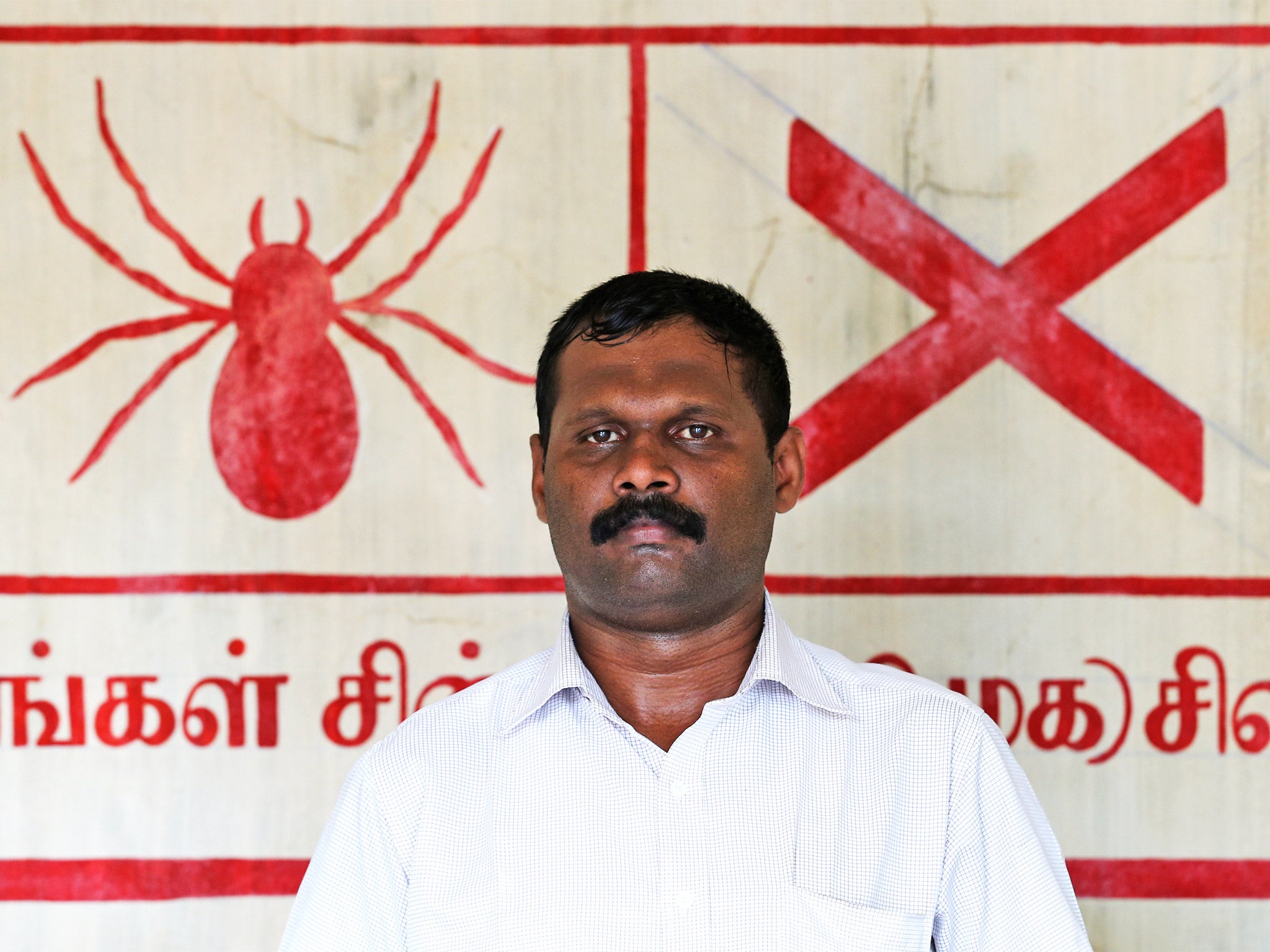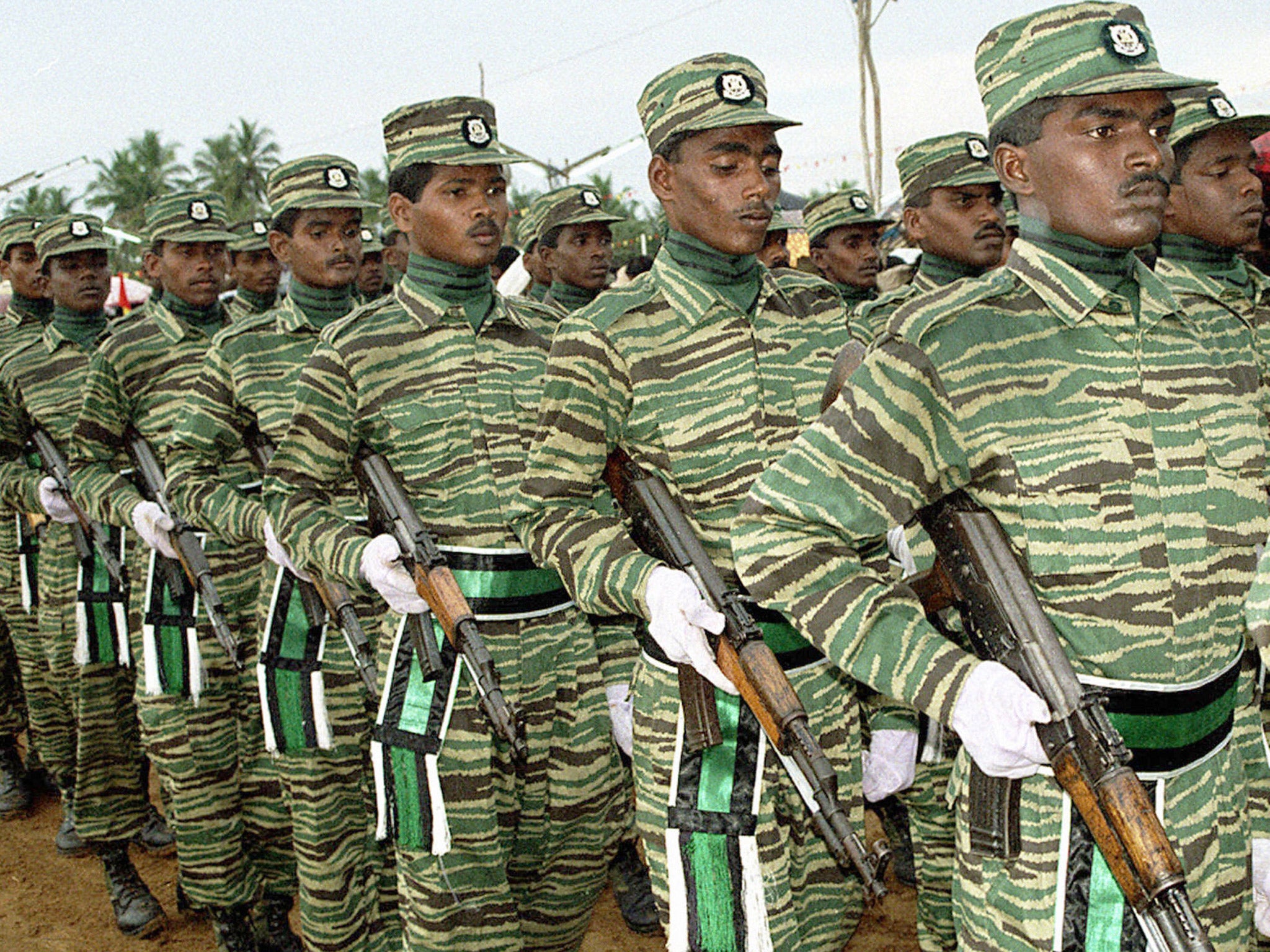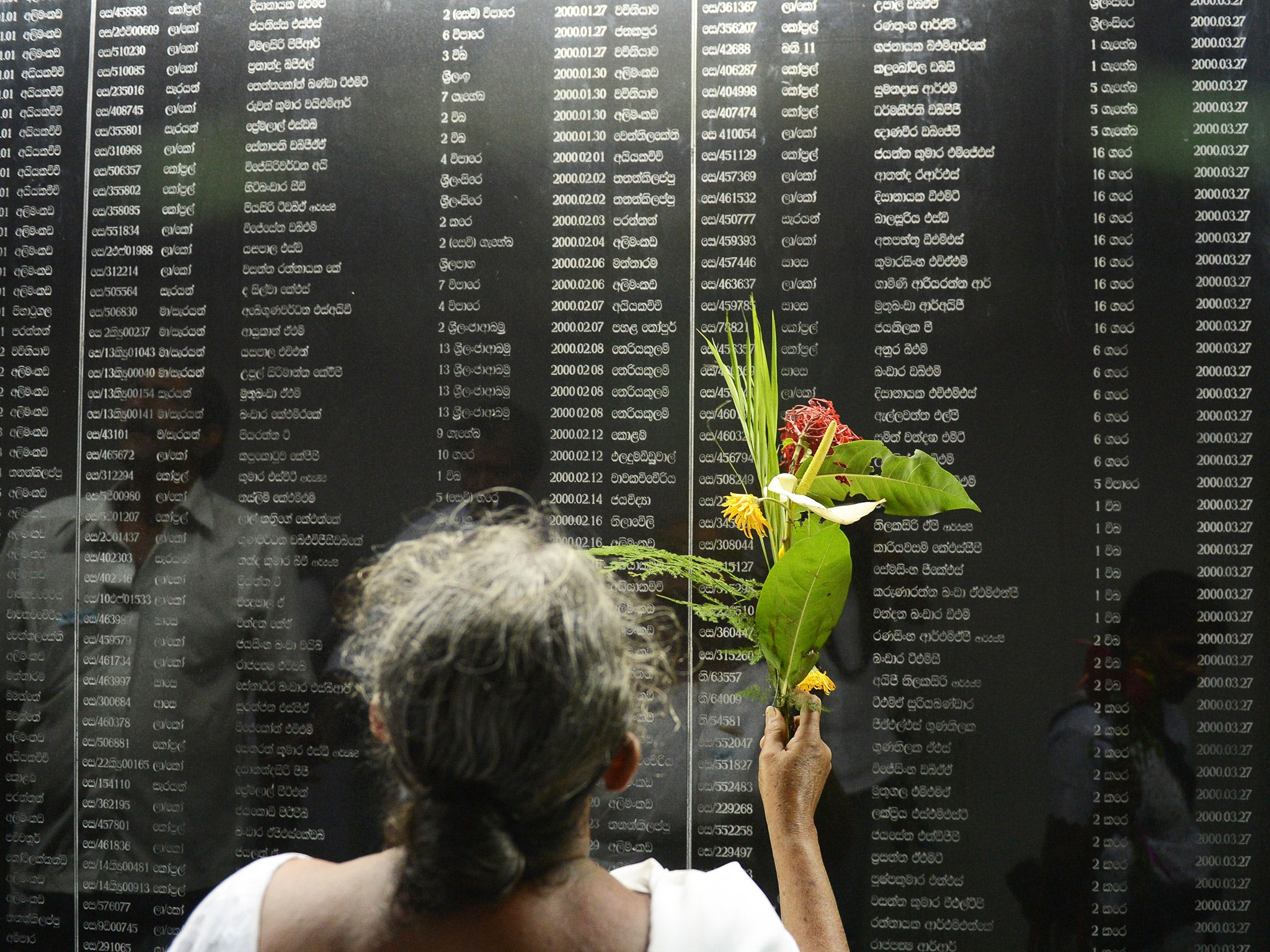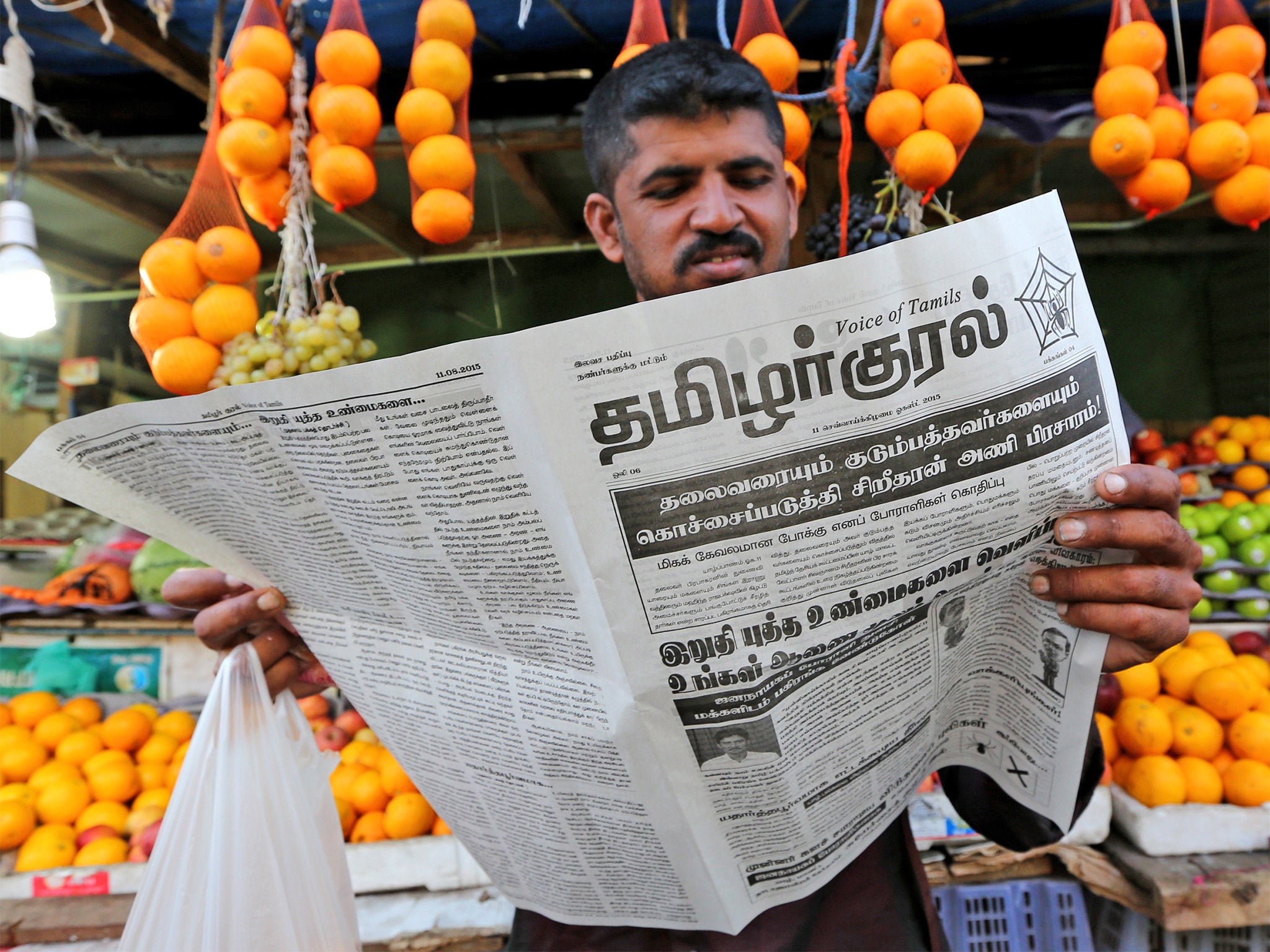Tamil Tigers change their stripes: Former fighters become politicians as the struggle for self-rule in Sri Lanka goes on
All members of the 'Crusaders for Democracy' are former Tiger fighters who fought the Sri Lankan military in a three-decade war for a separate homeland

The rebel-turned-politicians once carried heavy weapons, killed civilians as well as soldiers and bombed buses and trains packed with children. They wore cyanide capsules around their necks and lived by a code that required them to lay down their lives at any given moment.
Shut inside the hot confines of a house in Jaffna, located in the former northern war zone of Sri Lanka, the nine men are busy drawing the future plans for their defeated party. They are members of “Crusaders for Democracy”, a political party made up of former Tamil Tigers.
All of the party members, except for their leader, are former Tiger terrorists who fought the Sri Lankan military in a three-decade bloody war for a separate homeland, demanding almost half of the tiny island for Tamils, who make up 12 per cent of the population.
The men, who still go by the noms de guerre given to each Tiger member, carry evidence of a war that split the country. Two of the ex-rebels have lost their right leg below the knee, one is blind, and all of them sport gun wounds, shrapnel injuries and deep scars.

Calling themselves the new face of the Tamil Tigers, a rebel group that was once dubbed “the deadliest terrorist organisation in the world” by the FBI, they insist that theirs is a “new cause”.
But their vocabulary, peppered with words such as “cause” and “fight for freedom” are strong echoes of the past. One that is dotted with suicide bombings; assassinations of two world leaders; proscribing women and child soldiers; making history as the only terrorist group to use land, sea and air forces in battle; and “inspiring” terrorist networks across the globe – including al-Qaeda.
But now, their “non-violent battle” they say, is for a peaceful solution for the rights of the minority Tamils in Sri Lanka. “We’ve renounced a war with weapons, and now we’re fighting through peaceful and non-violent means to achieve our goals,” says Venthan, 40, who lost his right leg in a battle 20 years ago.
In a country where most rehabilitated Tiger rebels hide their identity, the Crusaders flaunt it. The party members even highlighted their role as “freedom fighters” in speeches prior to Sri Lanka’s elections this month.
The group’s demands, which are reminiscent of those of the past, make people wary. The Crusaders want federalism and self-rule in the north and east, home to majority of the Tamils. During the war years, brutal ethnic cleansing programs were carried out by the Tamil Tigers, purging the north and east of its vast majority of Muslims as well as a few Sinhalese settlements. In 1990 the Tigers forced out 72,000 Muslims from the north in just 24 hours.
“The Tigers are still labelled as terrorists. Our people are affected, and we want to change this,” says Venthan, a former Sea Tiger, the deadly naval wing that carried out most suicide attacks during the war.

The Crusaders believe that they are the only group that can get the Sri Lankan government to bow to the pressure of granting the northern and eastern Tamils self-rule. “Even if we lose a limb or an eye, we were trained to keep on fighting,” he says.
“We had faith in weapons, but they were silenced. Our ambitions remain unfulfilled in the past six years, so now we fight a different struggle,” says another Crusader, Thulasi, explaining his reason for exchanging guns for words.
Yet despite their loss in the general election earlier this month – which the group puts down to a late entry, lack of funds and the cautious attitude of the northern masses – the Crusaders remain hopeful. “Forty per cent of the northern citizens didn’t vote because they didn’t trust the TNA [the main Tamil party],” says Thulasi, 37, who is blind in one eye because of a shrapnel injury.

“Politics is new for us, and we have to win their confidence, but those 200,000 mute votes are ours,” he says.
Although they failed to win a single parliamentary seat in the election, Nadesapillai Vithyatharan, the party leader and former editor of two Tamil pro-Tiger dailies, is confident that the Crusaders will grow into a powerful party.
“We will be a powerful force to deal with in two or three years,” says Vithyatharan, the only non-rebel member of the party. “That’s because this party is made up of men who are committed to their cause. Men who were ready to sacrifice their lives in the past, so we can’t fail.”
Despite there being more than 12,000 rehabilitated former rebels in northern Sri Lanka, the Crusaders received only 1,900 votes in the election. The TNA received more than 515,000 votes, winning 16 parliamentary seats in Sri Lanka’s 225-member legislature.
“Now is not the right time,” says Yogeshwari, a former child soldier. “We’re just beginning to rebuild our lives; we don’t want to be associated with the cause [Tigers] again.” “One era is over,” says another former Tiger who refused to be named.
“We don’t want another struggle – political or otherwise. We have to get together with existing parties instead of dabbling in divisive politics.”
Despite Colombo’s refusal to give into Tamil demands of a federal government, the nine men, planning from their Jaffna headquarters, are certain they will not lose their battle this time round. “We lost once,” says Thulasi. “We won’t lose again.”
Join our commenting forum
Join thought-provoking conversations, follow other Independent readers and see their replies
Comments
Bookmark popover
Removed from bookmarks